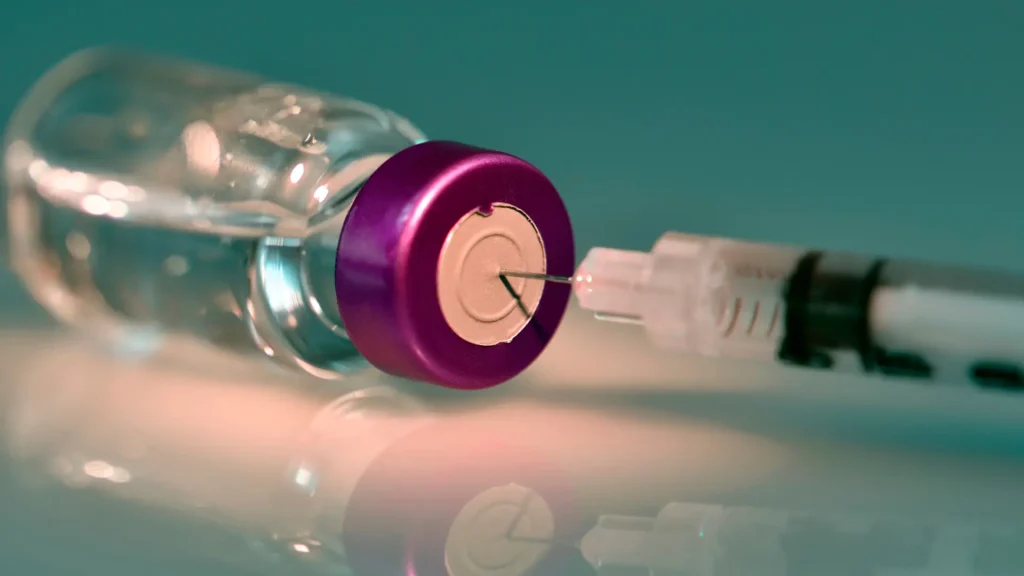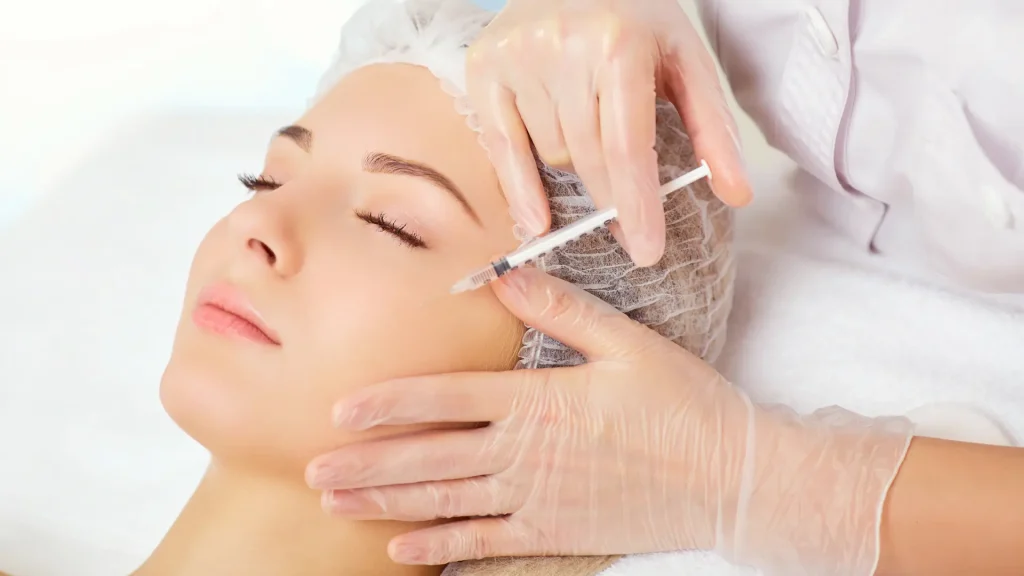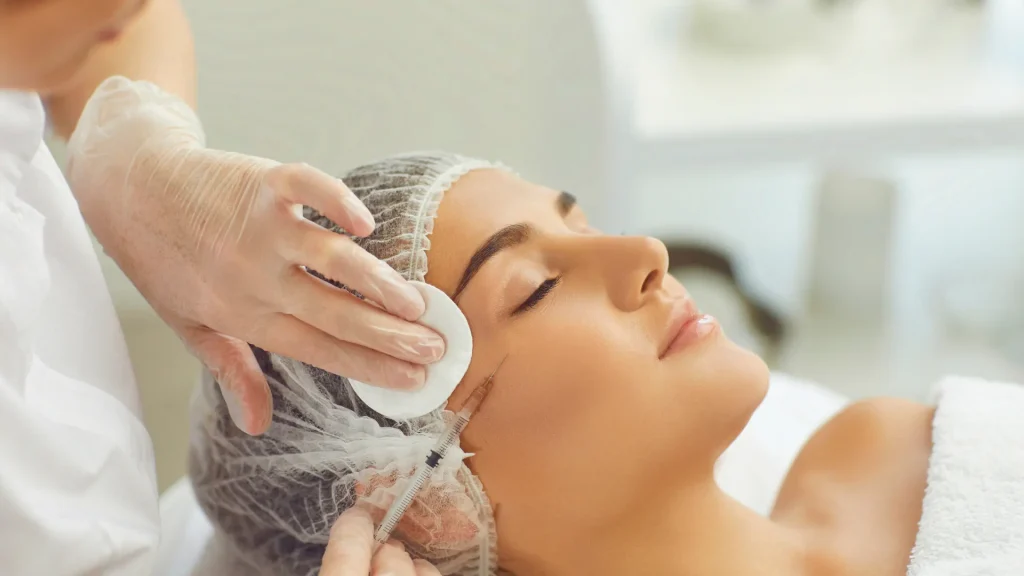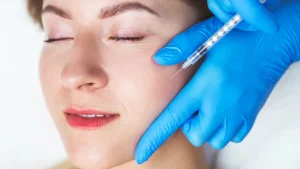Did you know that nearly half (48%) of approvals by the U.S. Food and Drug Administration (FDA) are related to medical devices? This highlights the dynamic growth of the aesthetic and therapeutic medicine field, focused on enhancing both appearance and well-being while ensuring safety and effectiveness.
The FDA plays a critical role in evaluating the safety, efficacy, and reliability of medical products, including drugs and devices. Achieving FDA approval signifies that a product has undergone rigorous testing to ensure it meets high standards. One notable example is South Korea’s Nabota injection, which received FDA approval for treating facial aging.
In this article, we will explore Nabota’s FDA approval, its significance, the supporting clinical trials, and ongoing post-marketing surveillance.
Key Takeaways
- Nabota has received the US Food and Drug Administration approval to treat moderate to severe glabellar lines.
- The FDA approval for medical devices ensures they have undergone meticulous clinical trials, testing, and assessment.
- According to the Nabota prescribing information, several reported adverse events were associated with botulinum toxin type A injections like Nabota.
- Continuous monitoring aids in maintaining the highest safety standards for providers and patients.
- The Nabota FDA approval highlights the process it underwent before receiving the green light from the agency.
About: Medica Depot is your trusted all-in-one supplier, offering a range of high-quality medical injectables and supplies. If you’re looking to order Nabota online, our dedicated sales agents can give you proper guidance. We offer a worry-free experience in searching for the best and most popular products on the market. Whether for health professionals, plastic surgeons, dermatologists, licensed estheticians, or other specialists, we can offer genuine, brand-name products you may need. With Medica Depot, we prioritize serving you better to improve the patient’s quality of life.
Significance of FDA Approval for Nabota

Nabota has become a popular choice for non-surgical aesthetic enhancements in the United States. Developed by Daewoong Pharmaceutical, this neuromodulator uses botulinum toxin type A to relax facial muscles and reduce wrinkles, lines, and other signs of aging. Its effectiveness is often highlighted through patient testimonials, including Nabota botox reviews and before-and-after photos, showcasing significant improvements in appearance.
Achieving FDA approval is a critical milestone for Nabota, underscoring its compliance with stringent safety and efficacy standards. The FDA approval, granted for treating moderate to severe glabellar lines, followed a partnership between Daewoong and Evolus, under which the product is marketed in the U.S. as Jeuveau. This endorsement from the FDA enhances Nabota’s credibility and marketability, assuring both medical professionals and patients of its quality and effectiveness.
FDA approval for medical products signifies that they have undergone rigorous clinical trials and evaluations to ensure safety and efficacy. For Nabota, this approval confirms its compliance with these high standards and provides confidence in its safety profile. It reassures providers and patients that Nabota is a reliable option for achieving desired aesthetic outcomes, supporting informed decisions in clinical practice.
Clinical Trials and Studies for Nabota
A phase 4 clinical study compared Nabota and Botox in treating glabellar lines. The findings revealed that Nabota’s onset of action was quicker than Botox’s, with noticeable effects two days after the treatment. Moreover, 85.4% of subjects exhibited improvement in glabellar frown lines at maximum frown within this onset of action.
Kim & Kim (2018) studied the safety and efficacy of Nabota for cervical and shoulder girdle myofascial pain syndrome. Their study highlighted that injecting Nabota (Prabotulinumtoxin A) into chronically painful muscles linked to cervical and shoulder girdle myofascial pain syndrome improved pain scores and enhanced quality of life, with benefits lasting at least 12 weeks.
South Korean medical experts also determined Nabota’s safety and efficacy in a phase 4 trial for post-stroke upper extremity spasticity. The neuromodulator’s scores from baseline showed significant improvements during the study period. Nabota demonstrated substantial efficacy and safety in treating upper limb spasticity in stroke patients.
Ongoing Post-Marketing Surveillance for Nabota

Medical providers and individuals should understand the importance of learning about post-marketing surveillance of medical devices. This involves continuous monitoring of a drug or device’s safety and efficacy after approval. Post-marketing surveillance includes collecting and analyzing data on adverse events, side effects, and drug performance.
Recognition of potential risks allows proper, prompt management of these risks. The ongoing post-marketing surveillance for Nabota confirmed its safety and efficacy. According to the Nabota prescribing information, several reported adverse events were associated with botulinum toxin type A injections like Nabota.
- Asthenia
- Generalized Muscle Weakness
- Diplopia
- Ptosis
- Dysphagia
- Dysphonia
- Dysarthria
- Urinary Incontinence
- Blurred Vision
- Breathing Difficulties
Continuous monitoring aids in maintaining the highest safety standards for providers and patients and provides updated valuable data to further understand and optimize Nabota treatment protocols.
Reassuring the Public about Nabota Safety and Reliability

The Nabota FDA approval highlights the process it underwent before receiving the green light from the agency. Numerous clinical trials and testing showed Nabota’s safety and efficacy in addressing glabellar lines. Its ongoing post-marketing surveillance assures that the neuromodulator remains monitored.
More clinical trial evidence from various medical experts also focuses on this injection’s potency, with most clinical data supporting its use for aesthetic applications. However, providers may encounter common concerns about potential Nabota side effects and its long-term safety.
It’s worth noting that maintenance sessions with Nabota are safe and should always be used strictly according to its treatment protocols. Misconceptions may arise from misinformation, emphasizing the need for continuous monitoring from the FDA to provide reassurance of Nabota’s reliability and effectiveness.
Conclusion
The FDA approval of Nabota signifies a significant milestone in the field of non-surgical aesthetic enhancements. The rigorous testing, clinical trials, and ongoing post-marketing surveillance have established Nabota as a safe and effective treatment for moderate to severe glabellar lines.
The product’s compliance with stringent FDA protocols and favorable safety profile enhance its credibility and marketability in the United States. Furthermore, the ongoing post-marketing surveillance underscores the commitment to maintaining the highest safety standards for medical devices, reassuring providers and patients about Nabota’s safety and efficacy in clinical use.
FAQs
1. What is the significance of FDA approval for Nabota?
FDA approval ensures Nabota has undergone rigorous testing and assessment to provide safe and effective treatment for moderate to severe glabellar lines.
2. What were the findings of clinical trials and studies for Nabota?
Clinical trials showed that Nabota’s onset of action was quicker than Botox’s, and it demonstrated safety and efficacy in treating cervical and shoulder girdle myofascial pain syndrome and post-stroke upper extremity spasticity.
3. What is ongoing post-marketing surveillance for Nabota?
Ongoing surveillance involves continuous monitoring of Nabota’s safety and efficacy after approval. It includes collecting and analyzing data on adverse events and potential risks to ensure the safety of providers and patients.
References
- Myckatyn, T. (2018, February 27). What does an FDA approval mean for cosmetic treatments and devices? American Society of Plastic Surgeons. https://www.plasticsurgery.org/news/blog/what-does-an-fda-approval-mean-for-cosmetic-treatments-and-devices
- Kim, H. (2019, February 7). Daewoong Pharmaceutical’s Nabota wins FDA approval. Yonhap News Agency; Yonhap News Agency. https://en.yna.co.kr/view/AEN20190207010000320









